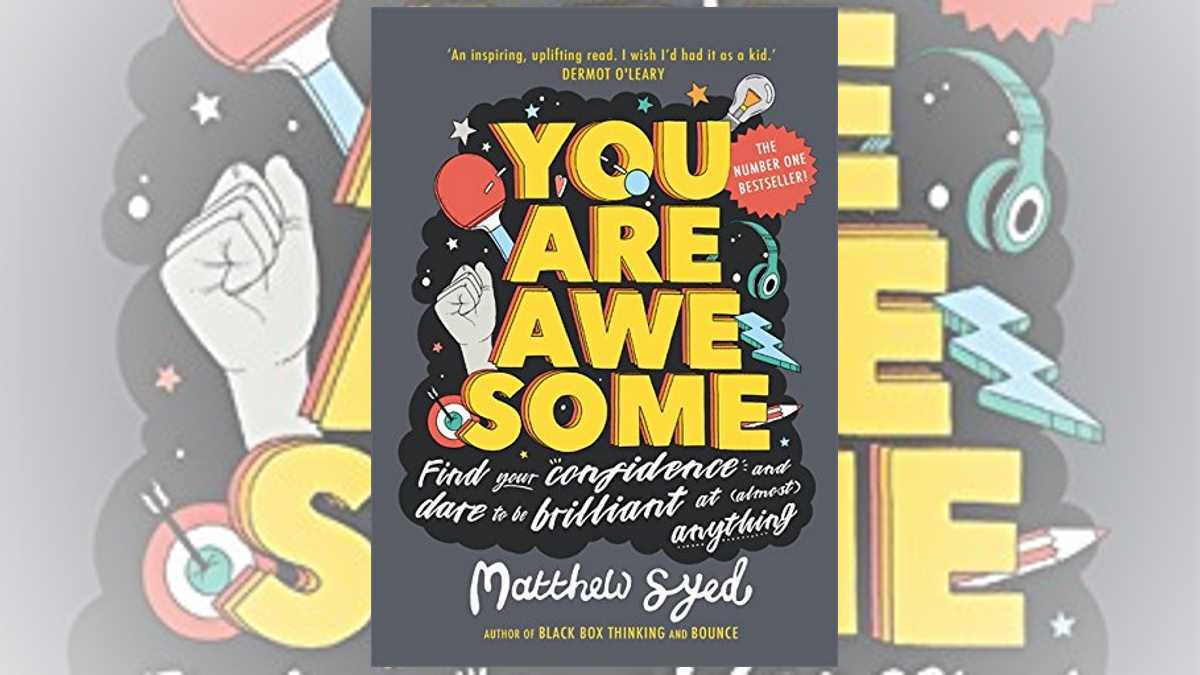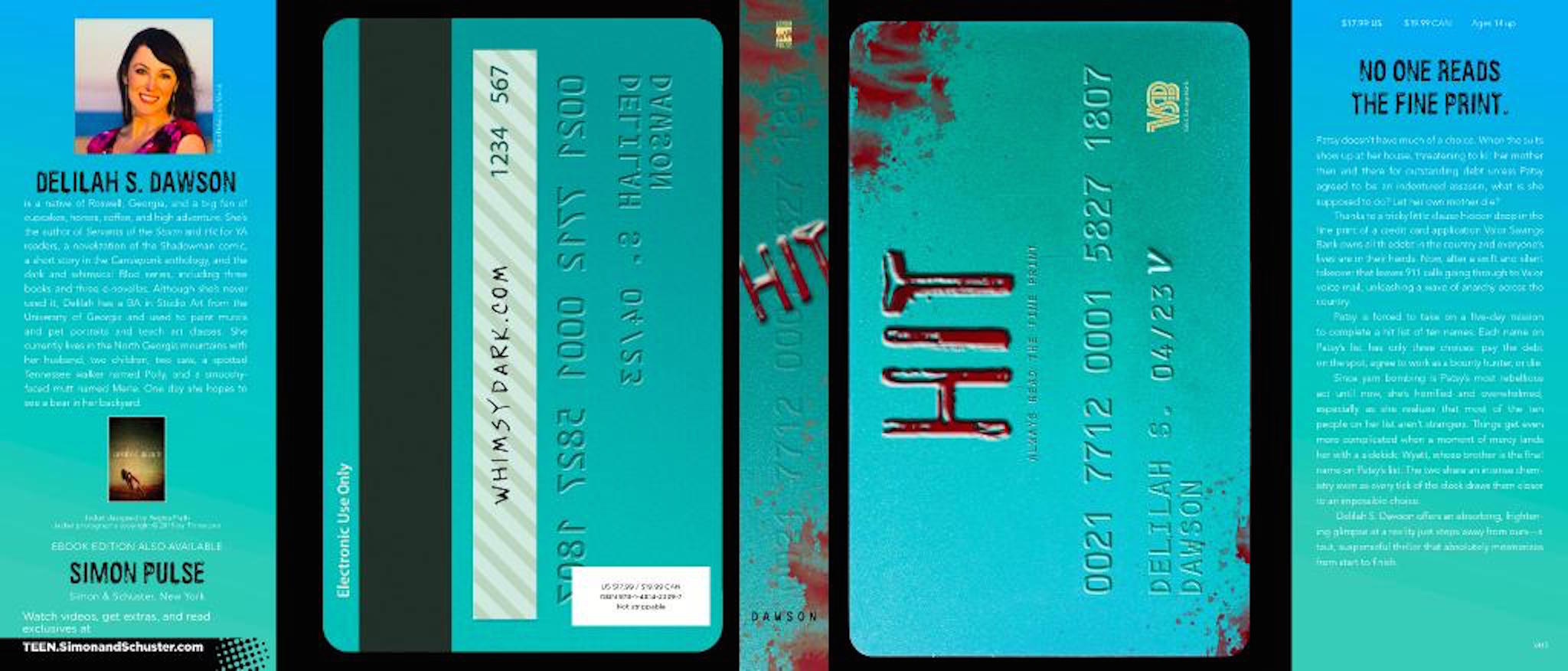This week’s word is “Awesome.”
As I write this week’s Word Wednesday post the 2018 soccer World Cup is in full swing. England still has a 100% record and Germany are still hanging on after a last-minute winner, giving credence to the theory that you can never count them out. In all the games across all the nations, there are 22 men showcasing awesome talent. Innate ability, right? Not according to Matthew Syed. Syed, a former Olympic table-tennis player, sets out the reasons why, whether your children want to be a Messi, Hawking, or Rowling, they can be awesome too. In his appealing book, aimed at ages 11-16, Syed has one message for our children – “You Are Awesome.”
What is You Are Awesome?
You are Awesome is subtitled, “Find your confidence and dare to be brilliant at (almost) anything.” It is, in essence, a book of inspiration aimed at children. I have an innate distrust of self-help manuals, certainly those offering to reprogram your children, but You are Awesome does not feel like snake oil for the insecure. It’s a measured, entertaining look at how to achieve your potential. Mostly, it preaches the value of hard work.
Whilst (UK) Times journalist’s Matthew Syed is the author named on the front cover, on the back of the book we discover that You are Awesome is a collaboration with two other writers, described as an agony uncle and a “Mindset Transformer.” (Which, I confess is the sort of title that would usually send me running in the opposite direction.) Syed is the author of Bounce which looks to be a variation of the same theme as You are Awesome. The idea that natural talent is a myth and application and practice are what make great champions.
A Tale of Two Kiddies.
At its start, You are Awesome takes two children, “Kid Average” and “Kid Awesome”. In order to get their son off the sofa, the parents to kids, both average and awesome, buy a table-tennis table. Kid Average hates it, loses badly to his dad, decides it’s not for him. He barely plays again and stays stuck in a rut. Kid Awesome, doesn’t like it much either. He too loses badly to his dad but decides he is going to get better. He keeps playing and gets a little better. He loses to his brother all the time but gradually catches him up, before surpassing him. He joins a club, keeps playing, becomes the best at the club. He keeps practicing and ends up on the England team, which leads to the Olympics. Yes, Kid Average/Awesome is Matthew Syed. He sees himself as the living embodiment that practice and hard work are more important than natural talent.
Drawing on his own experiences and others from the top of their field, Syed describes how to get yourself into the mindset for growing into greatness, in whatever field you might wish to excel in.
The book analyses what Syed had in his life to help him become an Olympian. He then explains how to try to overcome the feeling of “Well, I couldn’t possibly do that.” He looks at Steve Jobs, Michael Jordan, Thomas Edison, and their attitudes to failure. You Are Awesome describes the differences between a Fixed Mindset and a Growth Mindset, which essentially boils down to being open to the idea of changing your own status quo. It then goes to look at brain plasticity and how repeat practice changes neural pathways.
Practice makes Awesome.
Chapter 4 of You are Awesome looks at how to practice. The idea that not all practice is equal and the importance of challenging yourself. Chapter 5 asks you to challenge your preconceptions of genius. How the abilities of those at the top of their game appear to be innate, but they’re not. They’re the product of unseen hours of practice of the type seen in chapter 4.
Chapter 5 includes case studies of Jay-Z, Mozart, Serena Williams, David Beckham, and the Brontë sisters. Chapter 6 looks at marginal gains. The idea of breaking every apart your discipline into small pieces to see if you can improve each one by a tiny amount. The net result, once the pieces are reassembled, is a huge improvement. The final chapter is devoted to coping with pressure. After having practiced so hard for so long, how do you cope when you’ve almost attained your goal? How do you handle things going wrong?
Why Read You Are Awesome?
I’ve been looking for ways to motivate my children for a while now. They have (I would say) a natural aptitude for some things, but they’re happy just to cruise. The would rather play Fortnite. Alongside that, however, they do have the desire to be good at stuff (other than Fortnite). You Are Awesome gives them (and me) the tools to motivate them towards achieving their potential in whatever it is they want to do. (This may or may not be to dance the floss.)
They may not end up being Olympic contenders or concert pianists, but using You Are Awesome, I hope they can fulfill their potential. My son is naturally risk-averse and not in just the big stuff, like jumping off the high-diving board. He does not like getting out of his comfort zone, especially if he might “lose” at whatever it is he is doing. You are Awesome sets out, in an accessible way, why it’s OK to lose. Why failure is still useful. The book has even, funnily enough, helped me explain to my middle son, why it’s OK if he keeps losing at table-tennis to his big brother, because, one day, if he keeps playing, he won’t.
One thing the book doesn’t do so well, I think, is address the issue that some people are more naturally talented than others. That’s not to say that, for many of us, reaching greatness isn’t possible, but we are all naturally better at some things than others, and that aptitude is often the platform upon which greatness is built. You are likely to want to practice the thing you’re naturally good at, and that practice will be easier. I’m in no ways an expert but I think its misleading not to concede that nature will have some part to play, even if nurture can take you a very long way.
Much of the You are Awesome is common sense, but given some context, and explained in an accessible fashion, the common sense ideas in the book are potentially life-changing. The section on mindset showed me how I inadvertently have a fixed mindset in some areas, and that I am likely to pass that on to my children, unless I actively try not to. It’s not something I do intentionally, but with a busy life, and lots going on, sometimes it’s easier to say, “we’re not cut out for that.”
Reading the book has made me realize, how it is possible to overcome a fixed mindset. I thought myself a science-geek for much of my life, yet now two of the things I enjoy most are writing and painting models. This is despite thinking I wasn’t built to do either. I don’t suppose I’ll do either at Olympian levels, but I have seen both skills improve immeasurably as a consequence of practicing.
This realization will help me help my children put the elements of You are Awesome into practice.
You Are Awesome is an invaluable tool for motivating your children. For helping them understand that they are capable of almost anything they want to do, if they are prepared to work at it. It instills the idea, that greatness isn’t easy. It does this without being preachy and is filled with humor to keep cynical teenagers engaged. The book will also help break down the arduousness of practice too. You are Awesome is priced £9.99 in the UK ($15 in the US). It might just be the best tenner (or $15) you can spend for your children’s development.
If you found this review helpful, check out my other Word Wednesday reviews, here. Prof Robert Winston’s Help Your Kids With Growing Up might be of interest too.
I received a copy of this book for review.






